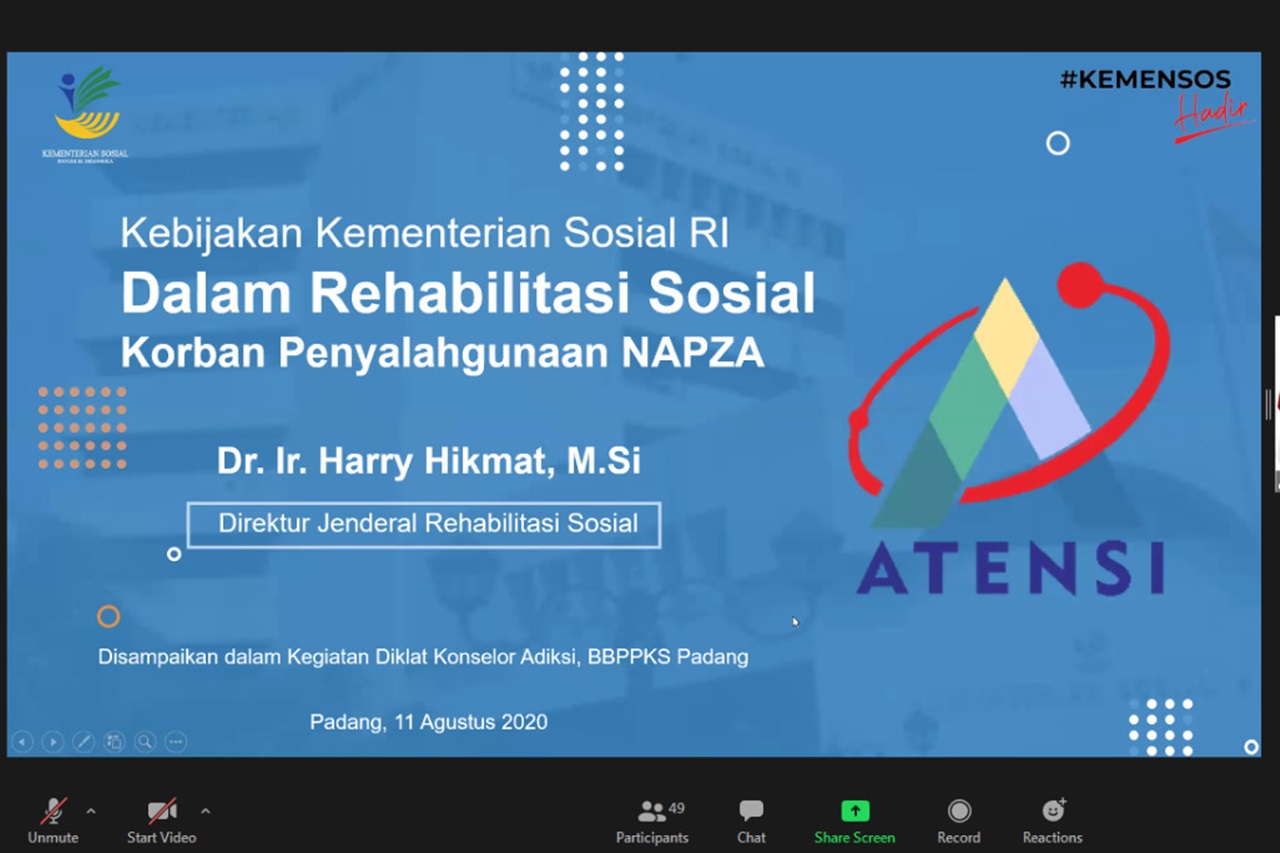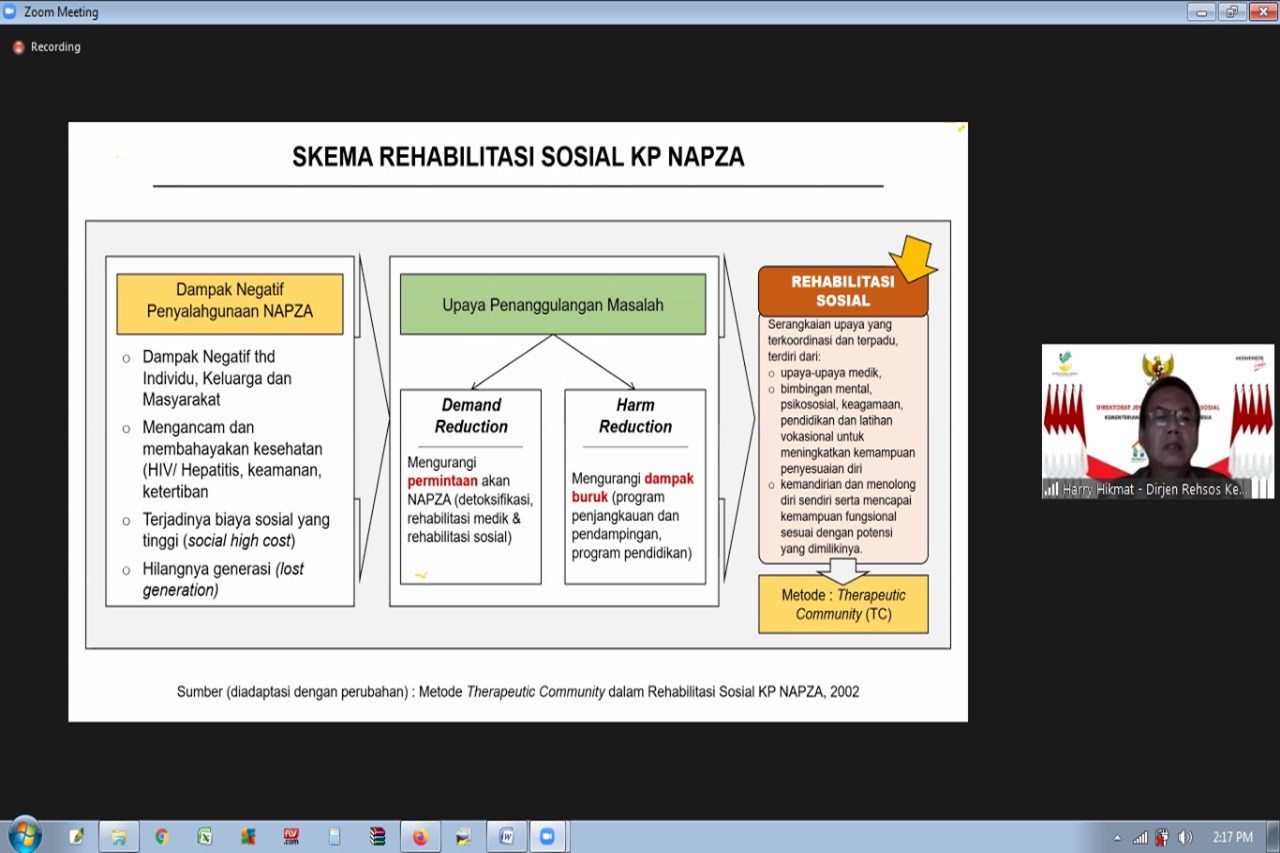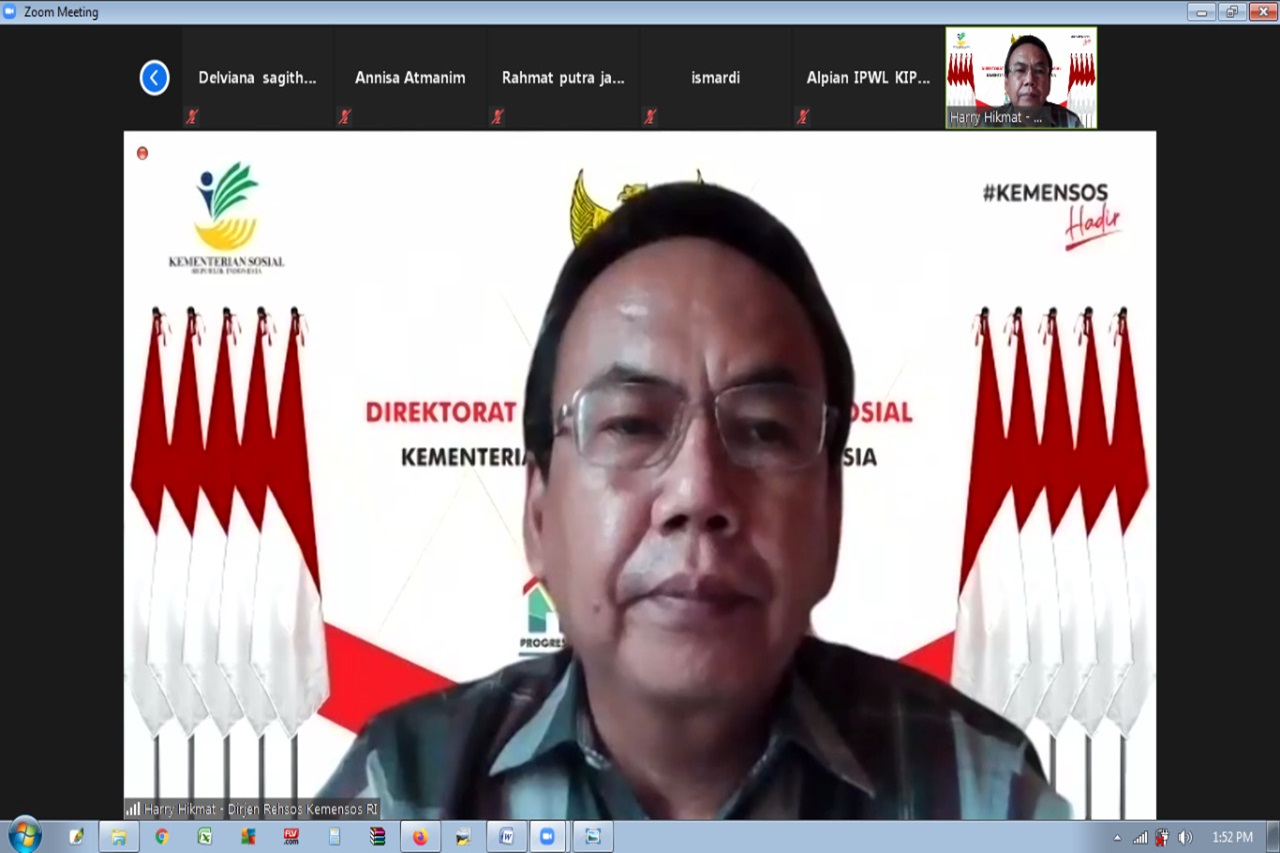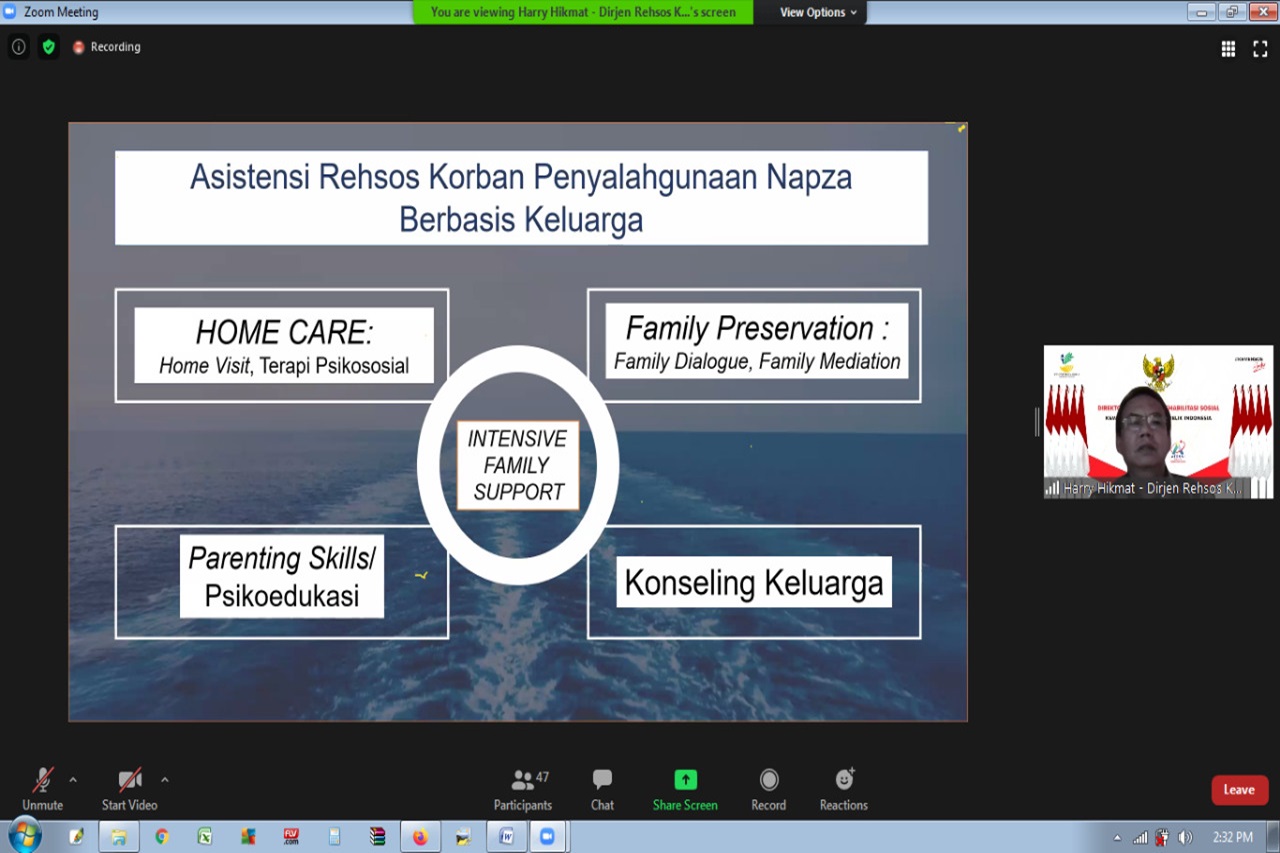BANDUNG (August 11, 2020) — The government continues to strive to prevent the negative impacts caused by drug abuse. The Ministry of Social Affairs through the Directorate General of Social Rehabilitation initiated a new approach in the policy of handling drug abuse victims.
The Indonesian Ministry of Social Affairs (Kemensos) policy on Social Rehabilitation for Victims of Drug Abuse was conveyed by the Director General of Social Rehabilitation of the Indonesian Ministry of Social Affairs, Harry Hikmat during the First Round of 2020 Addiction Counselor Training activities held by the Padang Center for Social Welfare Education and Training (BBPPKS).
The Ministry of Social Affairs’ policy in response efforts include the approach Demand Reduction, which reduces the demand for drugs (detoxification, medical rehabilitation and social rehabilitation) and Harm Reduction, which reduces the adverse effects (outreach and mentoring programs, education programs).
These efforts are carried out through the Social Rehabilitation Assistance Program (ATENSI) with 3 approaches, namely family, community, and residential-based. The family-based approach is preferred because the family is the best place to meet physical and psychological needs.
Harry said that one of the survey results showed that most of the parents of drug abuse victims were still living, either in urban or rural areas and in an environment that provided prevention, prohibition, and advice on the possibility of using drugs. The bond between parents and children is still good.
Most drug users still live with their families. This means that someone is exposed to drugs is very possible because efforts to prevent, control, supervise the behavior of family members are not optimal.
"The Ministry of Social Affairs sees the importance of building a family-based social rehabilitation strategy, because the survey shows that the family can be an instrument in social rehabilitation and prevention efforts, so that resilience arises from community members themselves," said Harry.
"The target group/target scope of the Directorate General of Social Rehabilitation is around 75.4 million social welfare service recipient (PPKS), one of which is Drug Abuse Victims of 3.6 million people based on data from BNN & UI Research Center in 2019)," said Harry.
Social rehabilitation of KPN aims to enable KPN to be able to carry out its social functions which include the ability to carry out roles, fulfill needs, solve problems and self-actualize, and create a social environment that supports the success of social rehabilitation of KP Drugs.
"Narcotics are a common enemy because they greatly affect the attitudes and behavior of victims exposed to drugs," said Harry. There are 3 (three) interrelated factors that influence the behavior of drug abusers, the first is individual factors such as wanting to try, join in, want to be called brave, to be accepted by the group, have fun, run away from problems, fill boredom and have weak ability to deal with the pressures of life.
Second, community environmental factors such as Permissive, Apathetic, Individualist Environment, the level of population density exceeding the livability limit (physical, psychological and social), the supervision system in schools is loose and policies are too soft regarding drug abuse.
Third, family factors, namely parents who are too strict/too permissive, too busy, not harmonious/divorced, parents who are also users and communication between family members is not smooth.
According to Harry, one of the social rehabilitation methods for KPN is Theraupetic Community (TC), which is a social rehabilitation method aimed at Drug Abuse Victims who are a "family" consisting of people who have the same problem and goal, namely to help themselves and others who are led by someone from them so that there is a change in behavior from negative to positive.
“The challenge for all of us and the Addiction Counselors is to be more active in promoting various prevention efforts and social rehabilitation efforts for those who have been exposed to drugs. These efforts can be done by informing the existence of social rehabilitation service centers," said Harry.
There are also several methods that are very relevant to counselors, including Home Care, Parenting Skills, Family Preservation, Family Counseling. Family Home visits victims intensively to understand the problem, accept the conditions, and share their experiences and feelings as well as mutual support for the recovery process KPN (psychosocial therapy).
While parenting skills undertaken to improve the understanding of parents about parenting / care / protection of the right to KPN. parenting skills do for families both when family members/beneficiaries are in the process of inpatient, outpatient services or for the general public.
Family Preservation to maintain the condition and sustainability of PM in the family environment, especially if there are indications of conflict/rejection/mistreatment/violence, various efforts have been made including Family Dialogue, Mediation and family reintegration.
Lastly, Family Counseling is not only done for KPN, but counseling is also done for Families so that there is harmony in KPN recovery.
The Director General of Social Rehabilitation hopes that the Social Welfare Institutions (LKS)/Balai/Loka in the future can function optimally, becoming a service center for families (family support) and the community (participatory community empowerment), while LKS will function as temporary shelters, early intervention case management-based and implement practical Professional Social Work (outreaching, tracing, daycare, social assistance, home visits, family mediation, family support, family preservation, family reunification/ reintegration, community development, dissemination/awareness raising, social campaigns, etc.)
Education and Training for Addiction Counselors In 2020, 55 Addiction Counselors served in the Recipient Institution for Reporting Obligation (IPWL) in the Sumatra region.
 English
English
 Bahasa
Bahasa




